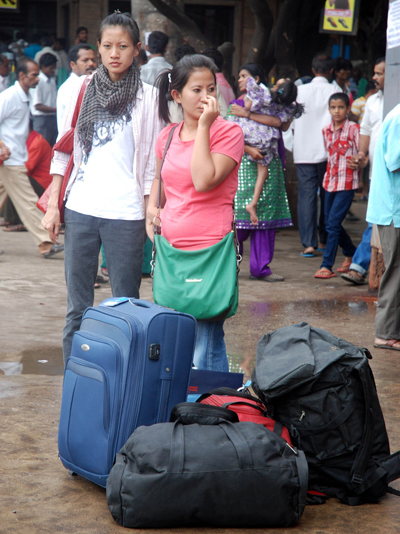 New Delhi, August 21: The Indian government is planning to take the help of the United States in tracking the origins of offensive web content used to scare North-East people across India.
New Delhi, August 21: The Indian government is planning to take the help of the United States in tracking the origins of offensive web content used to scare North-East people across India.
Reports said New Delhi will seek the help of the US' Department of Homeland Security and other agencies to track specific content hosted on American servers.
The decision to seek US help came after it was established that the main source of the offensive images, videos and hate SMSes was Pakistan.
The government yesterday said social networking sites have said it was difficult for them to take action against those who uploaded the offensive content as they do not come under the jurisdiction of India.
The government has also warned that it would take legal action against those sites, including Twitter, which have refused cooperation in the crackdown against offensive content targeting people from the North-East.
Meanwhile, the government yesterday decided to step up inter-ministerial consultations to compile evidence on the alleged Pakistan origin of the morphed images of Assam violence and blocked over 250 websites for orchestrating the online campaign of hatred.
Foreign Secretary Ranjan Mathai met External Affairs Minister SM Krishna and briefed him about the alleged role of Pakistan-based elements in using morphed images on Internet that triggered an exodus of northeastern people from other states, government sources said.
It was decided that the External Affairs Ministry will await inputs from the Home Ministry before deciding on how to take up the issue with Pakistan, said the sources.
A final decision on presenting the evidence to Pakistan will be taken after inter-ministerial consultations, said the sources.
The government has ordered an investigation into the fake messages on social networking sites.
Krishna is scheduled to visit Islamabad on a three-day trip from September 7 for talks with Pakistani Foreign Minister Hina Rabbani Khar that will focus on reviewing the second round of dialogue that was revived early last year following a hiatus after the 2008 Mumbai terror attack.
The talks are expected to encompass all bilateral issues, including terrorism and Kashmir, and the recent issue of the morphed images is set to figure in the discussions.
Krishna is likely to take up the issue of morphed pictures as such incidents show that elements engaged in anti-India propaganda continue to be active in Pakistan, sources said.
Thousands of people from the North-East fled the states of Karnataka, Maharashtra and Tamil Nadu last week after hate messages were spread through mobile phones and on Facebook, threatening retaliation for the ethnic violence in Assam last month.
Home Minister Sushilkumar Shinde said elements based in Pakistan used social networking websites to circulate morphed pictures to whip up communal tension in India. This was conveyed by Shinde to Pakistan's Interior Minister Rehman Malik during a telephonic conversation Sunday.
Islamabad rejected the charges and demanded evidence to prove it.
"The Indian minister has said that rumours were generated from Pakistan through cellular services," Malik told reporters in Islamabad while referring to his phone conversation with Shinde.
Also yesterday, the government blocked over 250 websites and blogs for uploading doctored videos and pictures. By Tuesday, around 275 such websites could be forced offline.
The Monday crackdown on websites follows a similar blocking of around 80 Internet pages and user accounts spreading hate messages on a slew of social networking sites, including Facebook, Google and Twitter.





Comments
Add new comment